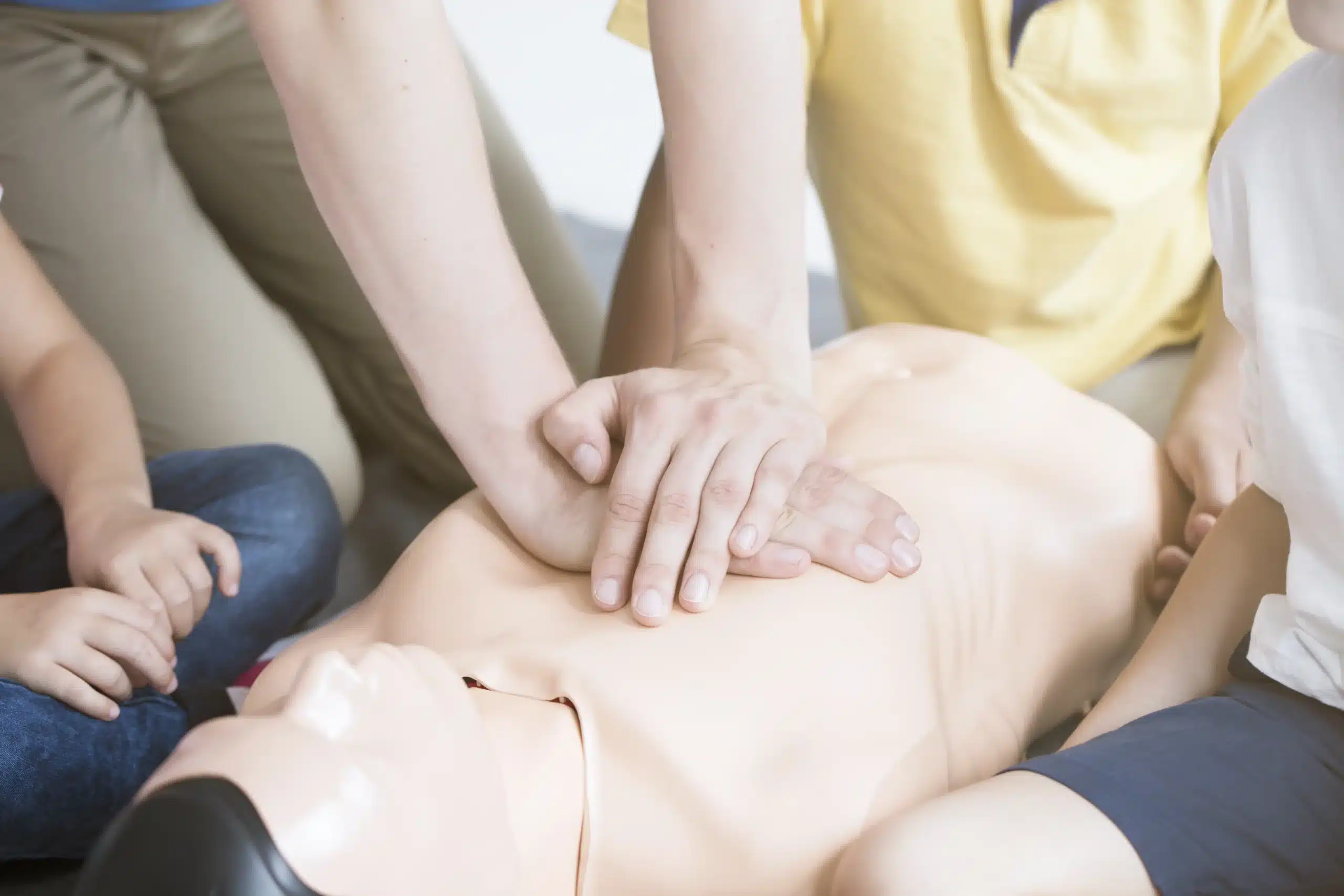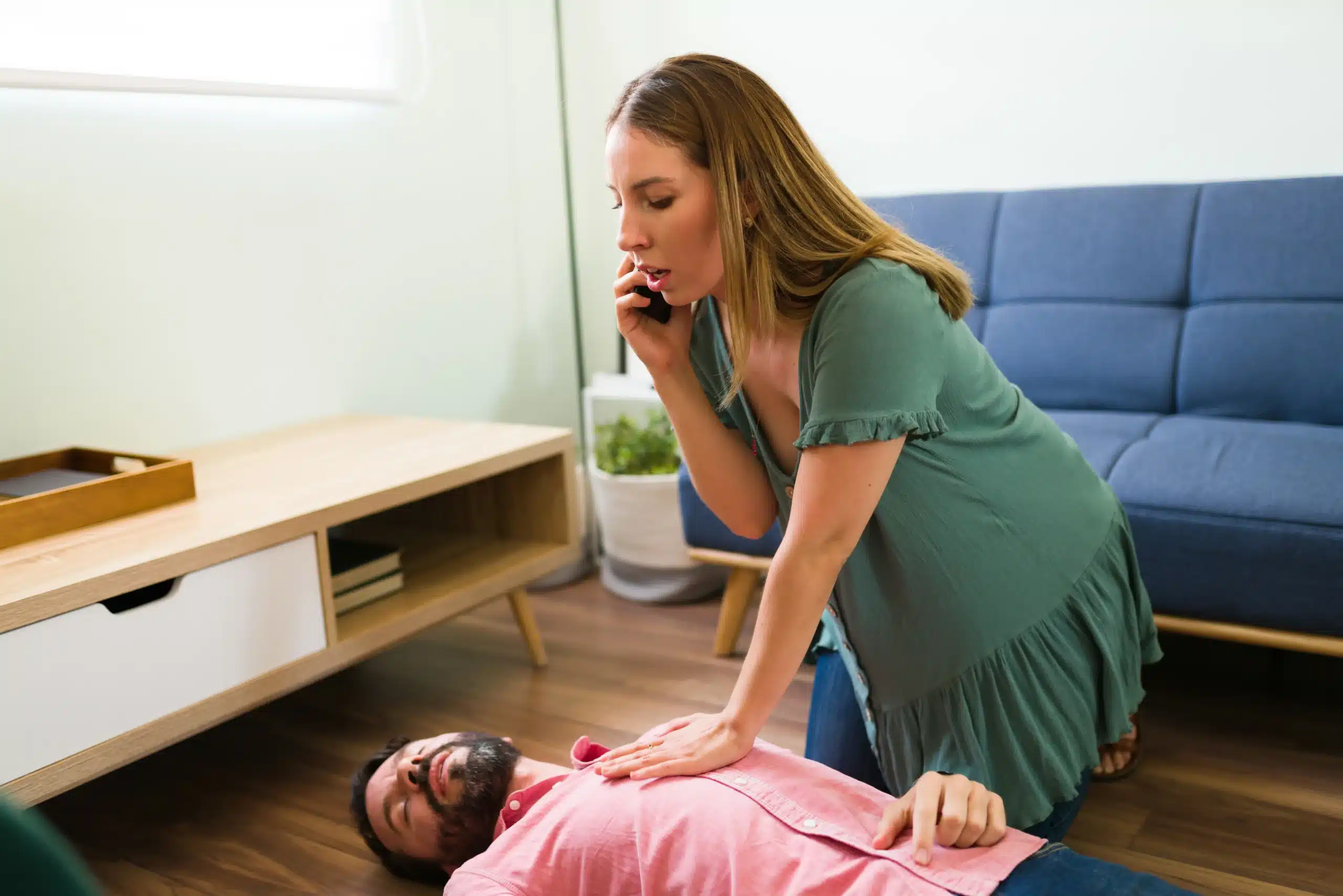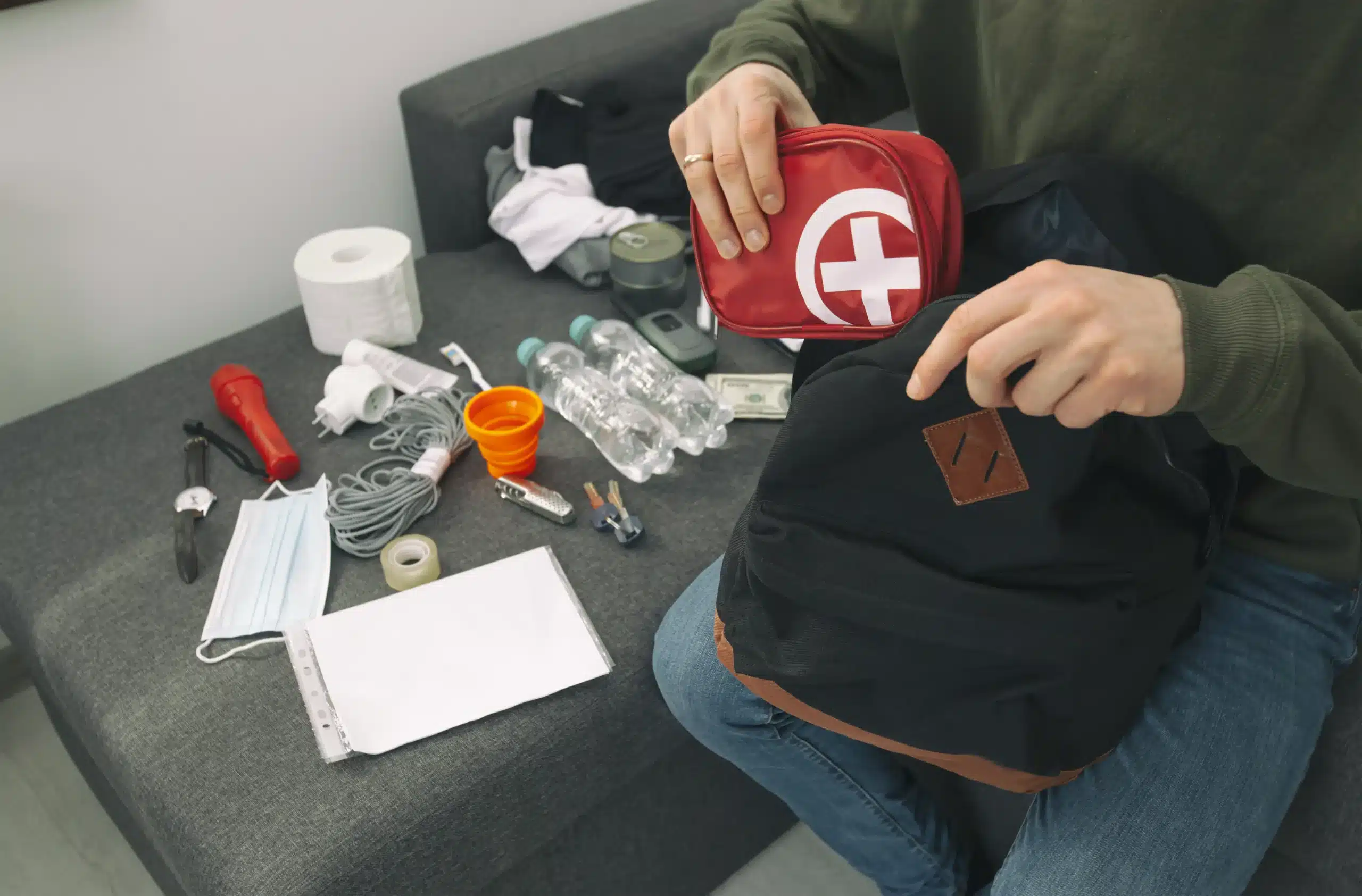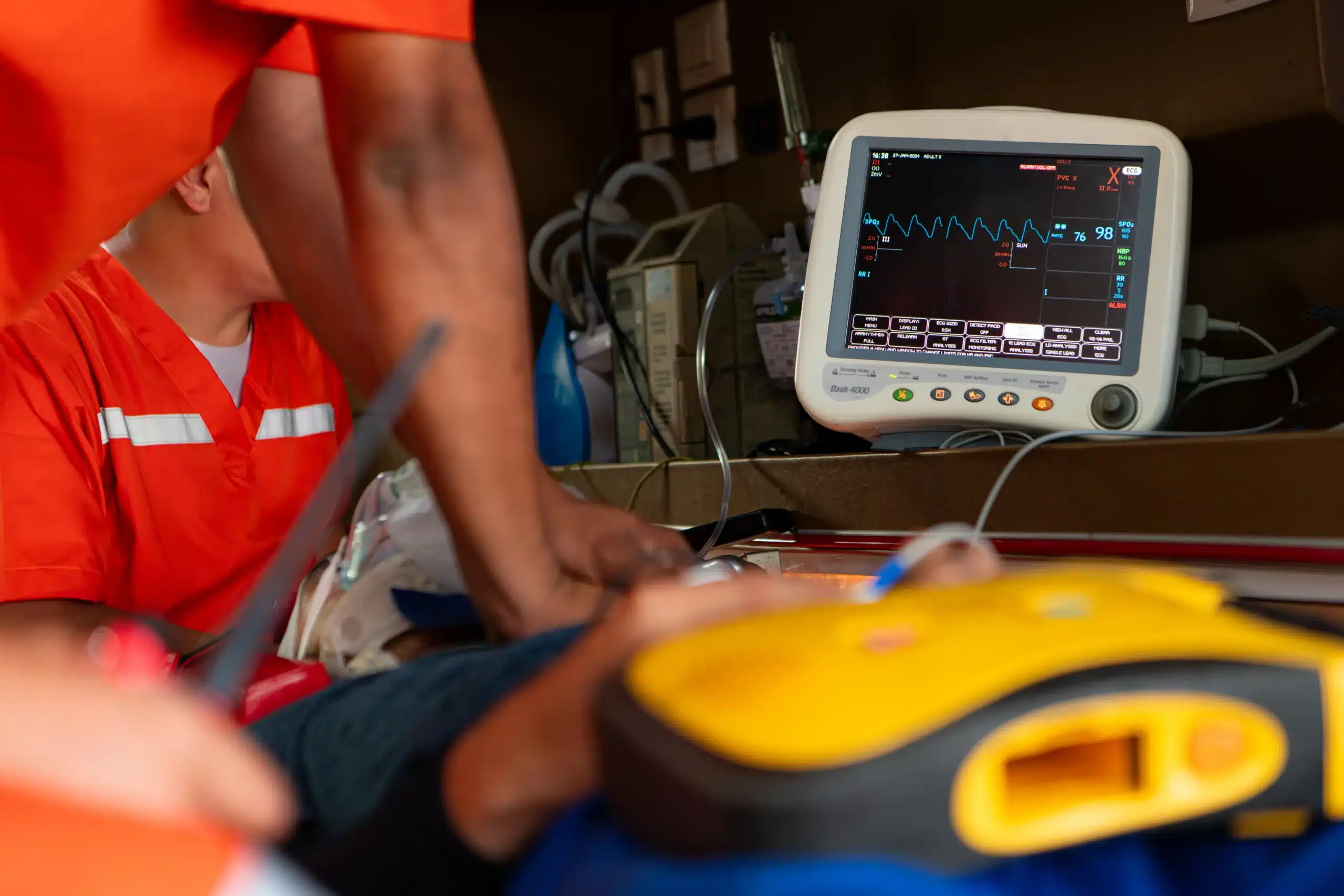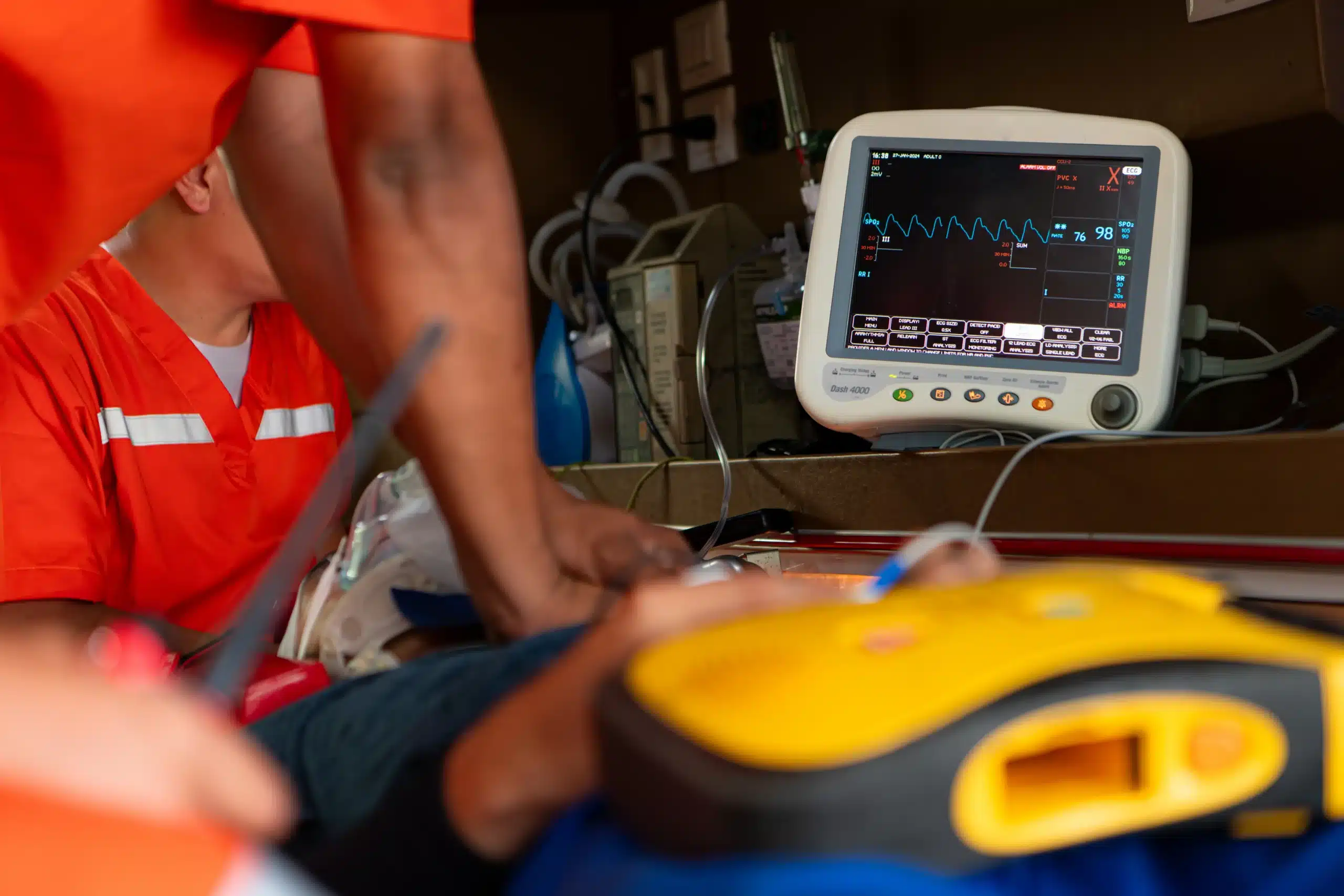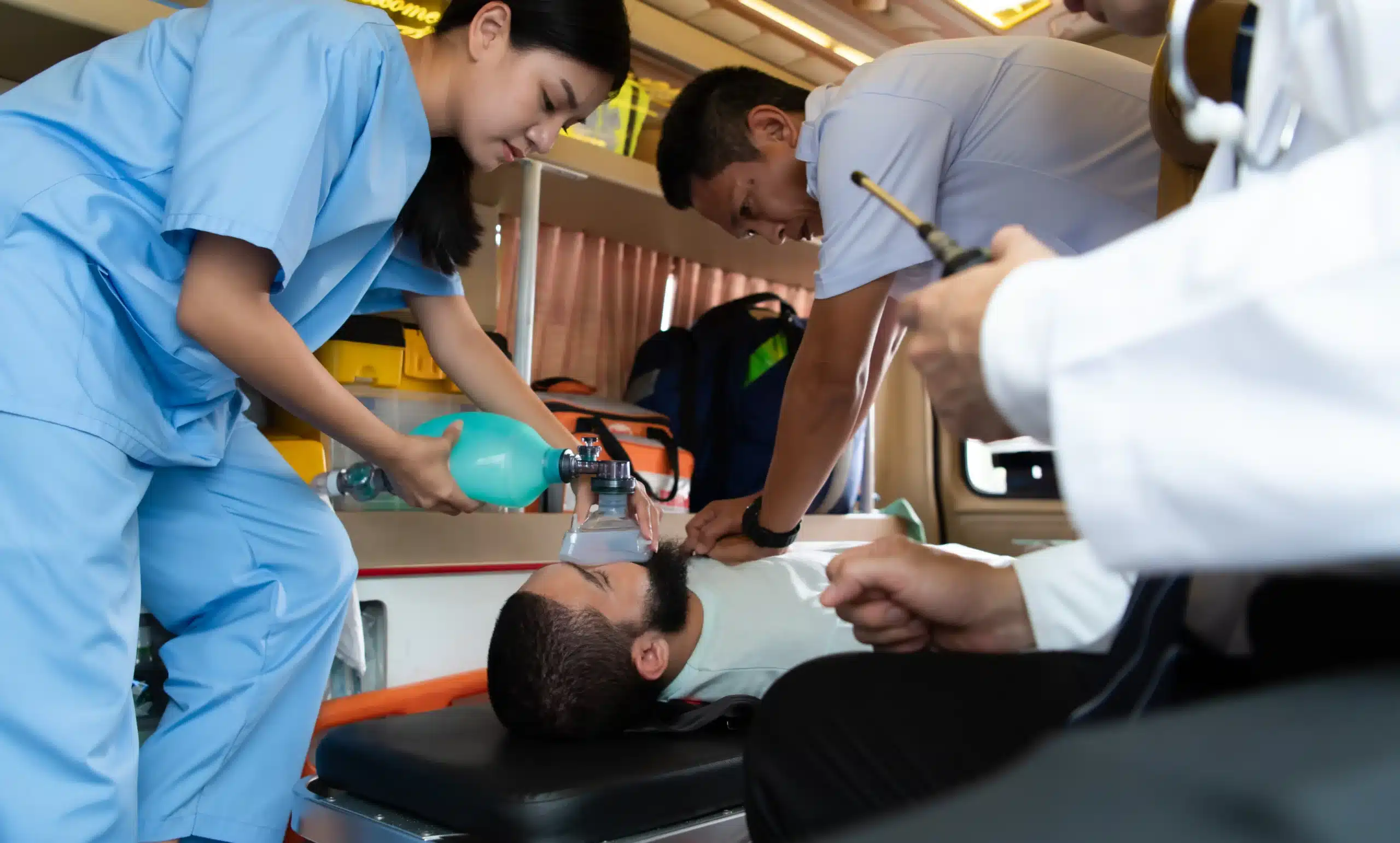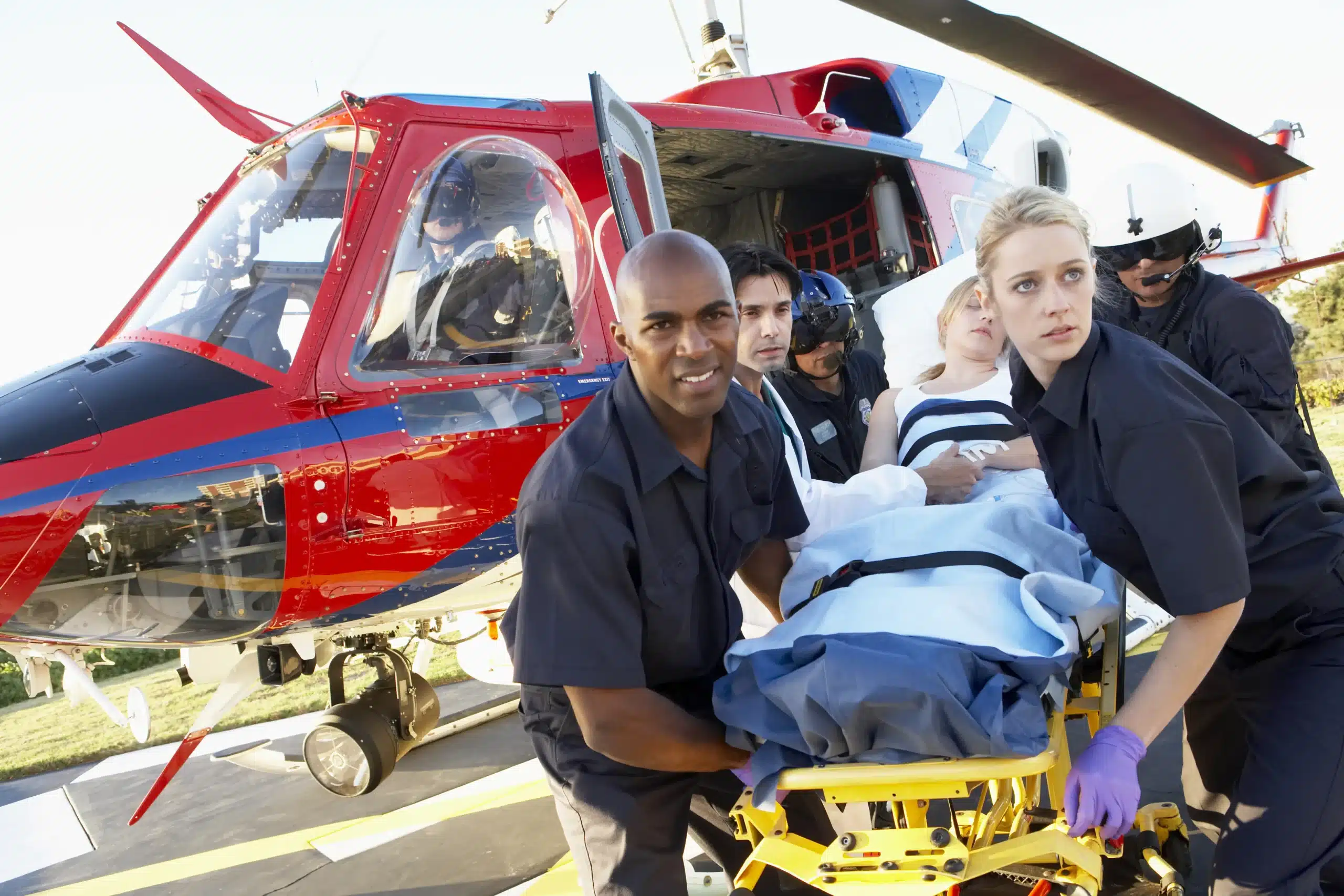Emergencies can happen anytime, anywhere. Would you know what to do if someone near you experienced a sudden cardiac arrest? Learning CPR can empower you to take life-saving action. This comprehensive guide explores the importance of CPR, the various CPR courses in Roseville, and how you can become certified. We’ll cover everything from basic CPR and AED training to more specialized certifications like BLS, ACLS, and PALS. We’ll also debunk common CPR myths and guide you through finding the right course and training provider in Roseville for your specific needs. Get ready to become a more confident and prepared individual.
Key Takeaways
- CPR skills save lives: Learning CPR, from basic to advanced levels like ACLS and PALS, equips you to handle medical emergencies and significantly increases the chance of survival. Find the right course for your specific needs, whether you’re a healthcare provider, parent, or community member.
- Roseville offers accessible CPR training: Explore various CPR course options from reputable providers in the Roseville area, including Rocklin CPR Classes and the American Red Cross. Compare costs, schedules, and course formats to find the best fit for you. Consider group discounts for added value.
- CPR training is a valuable investment: Think of CPR training as an investment in your skills and community. It can enhance your career prospects and provides the confidence to act in emergencies. Digital certification simplifies record-keeping and ensures easy access to your credentials.
What is CPR and Why is it Important in Roseville?
Cardiopulmonary resuscitation (CPR) is a life-saving technique used when someone’s heartbeat or breathing has stopped. This can happen due to a heart attack, drowning, or other medical emergencies. CPR combines chest compressions and rescue breaths to maintain blood flow and oxygen to vital organs until professional medical help arrives. Learning CPR empowers you to make a real difference in a critical situation.
Over 500,000 cardiac arrests occur each year in the United States. Immediate CPR can double or triple a victim’s chance of survival. In Roseville, like many other communities, having residents trained in CPR can significantly impact these survival rates. CPR-trained individuals become immediate responders within their community, bridging the gap before professional help arrives. The American Red Cross offers resources and classes to help people learn CPR and become equipped to handle these emergencies. CPR training is also often a workplace requirement, further emphasizing the need for readily available, trained individuals. CPR courses are widely accessible in Roseville, making it easier than ever to acquire these essential skills.
CPR Courses in Roseville: What Are Your Options?
Choosing the right CPR course can feel overwhelming with so many options available. This section breaks down the different types of CPR training offered in Roseville to help you find the best fit.
CPR/AED Training
CPR/AED training gives you the fundamental skills to respond to cardiac emergencies. You’ll learn how to perform CPR and use an automated external defibrillator (AED) on adults, children, and infants. The American Red Cross offers CPR/AED classes in Roseville, giving you the confidence to assist in emergencies. This course suits anyone who wants to learn basic life-saving skills, from everyday people to workplace responders.
Basic Life Support (BLS)
BLS certification builds upon basic CPR/AED training. It covers more advanced airway management and other essential skills for healthcare providers and professional rescuers. A BLS certification course teaches you how to respond effectively to respiratory and cardiac arrest. This training is often required for healthcare professionals, emergency responders, and those in healthcare settings.
Advanced Cardiovascular Life Support (ACLS)
Healthcare professionals who manage complex cardiovascular emergencies need ACLS training. ACLS courses cover advanced life support techniques, including airway management, medication administration, and electrocardiogram (ECG) interpretation. This certification is vital for physicians, nurses, paramedics, and other healthcare providers in critical care.
Pediatric Advanced Life Support (PALS)
PALS training focuses on the specific needs of infants and children during cardiac arrest or other respiratory emergencies. PALS certification covers advanced life support techniques tailored to pediatric patients, including airway management, medication administration, and recognizing respiratory distress. This course is essential for healthcare providers working with children, such as pediatricians, pediatric nurses, and EMTs.
First Aid Courses
First aid training, while not strictly CPR, is a valuable addition to any CPR course. First aid courses teach you how to handle various medical emergencies, from minor injuries like cuts and burns to more serious situations like choking and allergic reactions. Learning first aid allows you to provide immediate care until professional help arrives.
Where to Find CPR Training in Roseville
Finding the right CPR training in Roseville can feel overwhelming with so many options. To simplify your search, we’ve compiled a list of reputable providers offering various CPR certifications and courses.
Rocklin CPR Classes
Rocklin CPR Classes, a woman-owned American Heart Association (AHA) Training Center, offers high-quality AHA-certified courses. These courses include BLS, ACLS, PALS, CPR, and First Aid. They provide convenient scheduling options, with classes available daily in Rocklin and surrounding areas, making them accessible to Roseville residents. Explore their website for more information on their BLS, ACLS, and PALS certifications. They also offer group discounts, a great option for workplaces or families training together. Contact them directly with any questions.
American Red Cross
The American Red Cross is a well-known provider of CPR/AED training in Roseville. Their courses equip participants with the skills to respond to emergencies. Find CPR class and certification information on the Red Cross website, where you can also browse available dates and register.
Safety Training Seminars
Safety Training Seminars offers AHA-certified courses, including CPR, BLS, ACLS, PALS, and First Aid. They also provide specialized training for California childcare providers, a valuable resource for those working in early childhood education. Visit their website for details on course offerings and schedules.
NorCal Emergency Medical Training
NorCal Emergency Medical Training provides CPR and other emergency medical training in Roseville and Rancho Cordova. As an AHA-authorized training center, they offer various certification courses. Explore their programs to find a CPR class that meets your needs.
What Happens in a CPR Course?
CPR courses blend theory and hands-on practice to give you the skills and confidence to act in an emergency. What you learn and how long the course takes depends on the certification level. A basic CPR/AED course covers core life-saving techniques, while advanced certifications like ACLS address more complex medical scenarios.
Course Duration and Format
CPR courses typically involve classroom instruction and hands-on practice. Expect a mix of lectures, demonstrations, and interactive exercises. Basic CPR certification can often be completed in a single day, while more advanced courses, such as PALS, might require a longer commitment. Check with your chosen provider, like Rocklin CPR Classes, for specific course schedules and durations.
Hands-on Practice with Mannequins
Practicing on realistic mannequins is a crucial part of any CPR course. This allows you to become comfortable performing chest compressions, rescue breaths, and other essential techniques. Instructors provide guidance and feedback, ensuring you’re using the correct form and depth for effective CPR. This hands-on experience builds muscle memory and confidence, preparing you to respond effectively in a real-life emergency. Register for a class to experience this training firsthand.
Written and Practical Exams
Most CPR courses include written and practical exams to assess your understanding and skills. The written exam tests your knowledge of CPR principles and procedures. The practical exam evaluates your ability to perform CPR correctly on a mannequin. Successfully completing both is typically required for CPR certification. Digital certification options are often available.
Key Skills You’ll Learn
In a CPR course, you’ll learn essential skills to respond to cardiac arrest and other medical emergencies. These include recognizing the signs of a heart attack, performing high-quality CPR, using an AED, and providing basic airway management. BLS certification also covers techniques for relieving choking and responding to various breathing emergencies. These skills empower you to provide immediate assistance.
Get CPR Certified: Process and Validity
This section covers everything you need to know about getting and maintaining your CPR certification—from enrolling in a course to understanding its validity.
How to Obtain Your CPR Certification
Getting CPR certified is straightforward. Start by finding a reputable training provider, such as Rocklin CPR Classes, that offers courses aligned with American Heart Association (AHA) guidelines. These courses cover essential life-saving skills, from the basics of CPR to more advanced certifications like ACLS (Advanced Cardiovascular Life Support) and PALS (Pediatric Advanced Life Support). CPR training prepares you to handle emergencies and builds your confidence to respond effectively under pressure.
Certification Duration and Renewal
CPR certifications generally remain valid for two years. It’s important to remember, though, that your skills can diminish even months after your initial training. Regular practice and refresher courses are crucial for maintaining proficiency. The American Red Cross Scientific Advisory Council emphasizes the importance of keeping your skills current. Set reminders to renew your certification promptly.
Digital Certification Options
Many CPR training providers now issue digital certifications. This means you receive an electronic certificate accessible online after you complete your course. This digital format makes it easy to access your certification and training records whenever and wherever needed. The American Red Cross, for instance, provides a two-year digital certificate for its Basic Life Support (BLS) course. This readily available format simplifies record-keeping and streamlines verification.
How Much Do CPR Courses Cost in Roseville?
Knowing the cost of CPR certification is a practical first step. Let’s break down the typical expenses associated with these courses in Roseville.
Average Course Costs
CPR course fees in Roseville depend on several factors, including the level of certification (CPR, BLS, ACLS, PALS, etc.), the course format (online, in-person, blended learning), and the training provider. Basic CPR and First Aid courses are generally less expensive than advanced certifications like ACLS or PALS. Safety Training Seminars offers various AHA-certified courses and emphasizes affordability, even featuring a low-price guarantee for Placer County. Comparing pricing from different providers is always recommended. Check with providers like Rocklin CPR Classes for their most current pricing.
Group Discounts and Special Offers
If you’re training a group, explore group discounts. Many CPR training providers, including the American Red Cross, offer reduced rates for group bookings. Also, keep an eye out for promotions. Some providers offer seasonal discounts or package deals that combine certifications. Contacting Rocklin CPR Classes directly is a smart way to inquire about group discounts.
Is CPR Training Worth the Investment?
While cost is a factor, consider CPR training’s value. Learning CPR equips you with life-saving skills for emergencies. This knowledge benefits you personally and your community. Many workplaces, especially in healthcare, education, and childcare, require CPR certification. Think of CPR training as an investment in your skills, career, and the well-being of those around you. CPR Educators, Inc. discusses the importance of being prepared, emphasizing that CPR training is valuable for everyone.
Register for a CPR Course in Roseville: Here’s How
Ready to become CPR certified? The registration process is straightforward, and we’ll guide you through the options.
Register Online
Signing up online is often the quickest and easiest route. Many providers, including Rocklin CPR Classes, allow you to browse course schedules and register directly on their websites. This lets you secure your spot from the comfort of your home.
Sign Up In-Person
If you prefer a more personal touch, you can register in person at the Rocklin CPR Classes training center at 805 Douglas Blvd. Suite 138, Roseville, CA 95678. Their team can answer any questions and help you choose the right course. You can also reach them by phone at (916) 246-6770. The center is open daily from 8 am to 10 pm.
Required Documents and Prerequisites
Generally, there aren’t many prerequisites for CPR courses. Some providers may require a government-issued ID for certification. Upon completion, you’ll receive an official American Heart Association certification card, valid for two years. While your certification lasts two years, refreshing your skills sooner is always a good idea.
Which CPR Course is Right for You?
Choosing the right CPR course can feel overwhelming with so many options. This section breaks down how to find the perfect fit for your specific needs.
Define Your Needs and Goals
First, think about why you want CPR training. Are you a healthcare professional needing to maintain licensure? Or are you a parent wanting to feel prepared for emergencies at home? Someone working toward a healthcare career might need a different certification level than a childcare provider or teacher. Identifying your goals helps determine which course best aligns with your needs. For example, healthcare providers often require Advanced Cardiovascular Life Support (ACLS) or Pediatric Advanced Life Support (PALS), while community members often choose basic CPR and AED training.
Consider Your Schedule and Learning Style
Life gets busy, so finding a course that works with your schedule is essential. Look for classes offered on weekends, evenings, or weekdays. Also, consider how you learn best. Do you prefer hands-on learning, or do you thrive in a more traditional classroom setting? Many providers offer a variety of formats. If you’re learning with friends or colleagues, check if the training center offers group discounts.
Evaluate Course Offerings and Provider Reputation
Not all CPR courses are created equal. Choose a reputable provider affiliated with a recognized organization like the American Heart Association. For example, Rocklin CPR Classes is affiliated with Safety Training Seminars, an American Heart Association Training Center. This affiliation ensures high-quality instruction. Look for courses offering hands-on practice, comprehensive materials, and certified instructors. Before committing, compare course offerings—like BLS, ACLS, PALS, CPR, and First Aid—to ensure the course meets your requirements. If you have questions, contact the provider directly.
CPR Training Myths: Debunked
Let’s clear up some common misconceptions about CPR training. These myths can prevent people from learning this lifesaving skill, so let’s set the record straight.
“Only Medical Professionals Can Perform CPR”
This is absolutely false. Anyone can learn CPR, from students to teachers, parents to grandparents. In fact, bystanders are often the first on the scene of an emergency, making their knowledge of CPR crucial. The techniques are designed to be straightforward and accessible to everyone, regardless of medical background. As the folks at Live and Learn CPR put it, anyone can and should learn CPR.
“CPR Always Revives Someone”
CPR is a powerful tool, but it’s not a miracle cure. It significantly increases the chances of survival, but it doesn’t guarantee revival. The goal of CPR is to maintain blood flow and oxygen to the brain and vital organs until professional medical help arrives. MyCPR NOW rightly points out that performing CPR indefinitely without professional help isn’t recommended. Calling 911 remains the most critical step in any medical emergency. CPR buys time, but it’s the paramedics and hospital staff who provide definitive care.
“You Might Cause Serious Harm by Performing CPR”
The fear of causing harm often holds people back from performing CPR. However, the potential for harm is minimal, especially compared to the potential for saving a life. Even if someone doesn’t need CPR, the risk of serious injury from chest compressions is low. Live and Learn CPR emphasizes that you’re unlikely to hurt someone by performing CPR, even if they don’t need it. In a life-or-death situation, the benefits far outweigh the risks. Don’t let fear paralyze you.
“CPR Training is Too Expensive or Time-Consuming”
CPR training is an investment in yourself and your community, and it’s more accessible than you might think. Many organizations, including Rocklin CPR Classes, offer affordable CPR training and flexible schedules. Pulsestart CPR highlights the accessibility and affordability of CPR training. It’s a valuable skill that can be learned relatively quickly, and the potential payoff is immeasurable. Contact us to learn more about our course offerings and pricing.
Why Get CPR Certified in Roseville?
Knowing CPR can make a real difference in critical situations. Whether you’re a healthcare professional, work with children, or simply want to be prepared for anything, getting CPR certified in Roseville offers several compelling benefits.
Advance Your Career
A CPR certification can significantly enhance your resume and open doors to new career opportunities. Many healthcare roles, childcare positions, and other jobs require or prefer candidates with current CPR certification. You’ll learn CPR, how to use an AED, and airway management techniques to confidently respond to medical emergencies. These skills are invaluable, and having them can give you a competitive edge. Check out our American Heart Association BLS course for comprehensive training.
Prepare Yourself and Build Confidence
CPR training empowers you to handle emergencies with confidence. Learning these essential life-saving skills, from basic CPR to more advanced certifications like ACLS and PALS, prepares you for real-life situations. It instills a sense of readiness and assurance, allowing you to react effectively under pressure. Knowing you can make a difference provides invaluable peace of mind.
Contribute to Community Safety
Becoming CPR certified means you’re equipped to help in your community. You become a valuable resource, able to provide immediate assistance in medical emergencies until professional help arrives. This strengthens community safety, creating a network of prepared individuals ready to respond when needed. You can find CPR classes in Roseville, including BLS, ACLS, and PALS courses. Consider joining a group class for a supportive learning environment and potential cost savings. Contact us if you have questions.
Related Articles
- Why CPR is Critical in Healthcare
- CPR Training in Sacramento: Your Guide – Rocklin CPR Classes
- The Importance of CPR in Saving Lives – Rocklin CPR Classes
- CPR Classes in Sacramento: Your Certification Guide – Rocklin CPR Classes
- Busting CPR Myths and Saving Lives
Frequently Asked Questions
What’s the difference between CPR and BLS?
CPR focuses on the immediate response to cardiac arrest—chest compressions and rescue breaths. BLS (Basic Life Support) builds upon CPR, adding techniques like airway management and using a bag-valve mask. BLS is often a requirement for healthcare providers and professional rescuers. Think of CPR as the foundation, with BLS providing a broader skillset.
How long is a CPR certification valid, and how do I renew it?
CPR certifications are typically valid for two years. Renewal involves taking a refresher course before your current certification expires. Regular practice is highly recommended to keep your skills sharp, even between renewals. Check with your certifying organization or training provider for specific renewal requirements.
What if I’m nervous about performing CPR in a real emergency?
It’s completely normal to feel apprehensive. CPR courses use realistic mannequins and scenarios to build your confidence and reduce hesitation. Remember, any attempt at CPR is better than none. The training provides you with the tools and knowledge to act effectively, even under pressure.
Are online CPR courses acceptable?
While online courses can offer convenient instruction, they often lack the crucial hands-on practice component. Blended learning, combining online modules with in-person skills sessions, is a good compromise. For full certification, you’ll need to demonstrate your skills in person with a certified instructor.
How do I choose the right CPR class in Roseville?
Consider your individual needs. Are you a healthcare professional, a parent, or someone seeking general knowledge? Think about your schedule and preferred learning style. Look for reputable providers offering AHA-aligned courses with hands-on practice. Don’t hesitate to contact providers directly with any questions. They can help you find the best fit.
